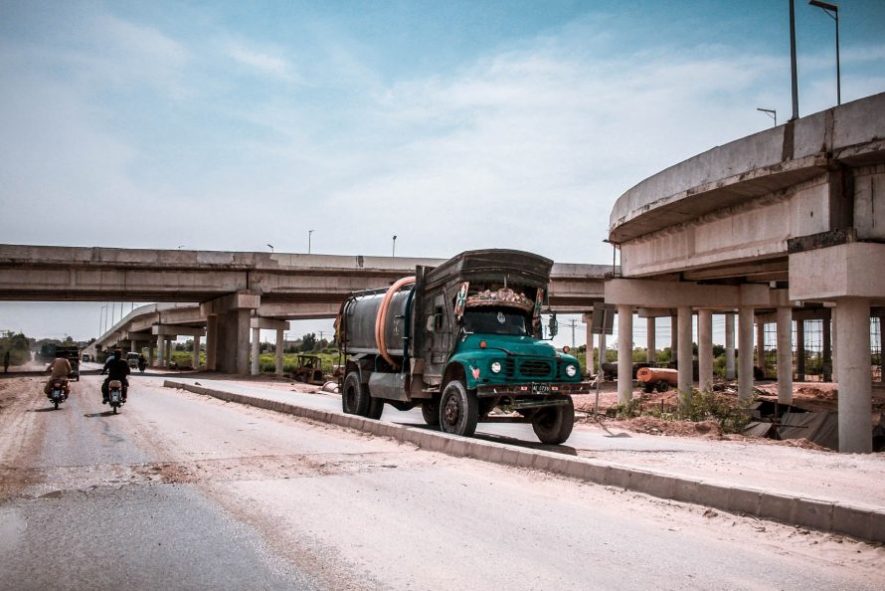As you might already know, our project is working on an edited volume together with our great contributors. Now that our book has a title and a contract, we are thrilled to share with you a first preview!
In the post-2000s, Africa has witnessed a radical diversification away from primarily Western-centric funding and frameworks of ‘development’ to a more pluralist landscape of actors and external relations. Much of the existing work on global zones of large-scale economic projects and infrastructure, however, empirically concentrates on Western actors, and often used to privilege the diffusion of discourses and technical standards of a capitalist economy embedded in liberal global governance. Yet the polycentric landscape of development has been more and more complicated by growing South-South relations, which in Africa have come along with the arrival of a flurry of emerging market investors from China, India, and Brazil and others. While the extent to which these relations spur growth and development has been debated, it remains an important question, whether and how growing South-South relations transform business-society relations and transform, perhaps even challenge, entrenched hegemonic ways of ‘global’ governance.
 This question of course has no single answer. Rather, it calls for sensible awareness of shifting globalities, that is of the various ways in which actors use diverse ideas of the global, as well as practices and technologies that travel, to construct and sustain connections to other localities (Law 2004; Bartelson 2010). Therefore Jana Hoenke, Eric Cezne, and Yifan Yang have edited a collection that traces such globalities from concrete sites of global South investment in Africa, and from the practices in use there. To be published in the African Arguments series edited and distributed by Hurst and Oxford University Press, the chapters bring together excellent new work on ports, roads, mines and other sites, all usually perceived as marginal for shaping contemporary global/transnational governance. The book however treats these Chinese, Brazilian and Indian projects as unique frontier zones for the emergence and transformation of transnational governance practices. In them, elites, practitioners, NGOs and communities mimic, make and transform transnational practices, embodying and constantly negotiating various rationales of governance and technologies from multiple sources.
This question of course has no single answer. Rather, it calls for sensible awareness of shifting globalities, that is of the various ways in which actors use diverse ideas of the global, as well as practices and technologies that travel, to construct and sustain connections to other localities (Law 2004; Bartelson 2010). Therefore Jana Hoenke, Eric Cezne, and Yifan Yang have edited a collection that traces such globalities from concrete sites of global South investment in Africa, and from the practices in use there. To be published in the African Arguments series edited and distributed by Hurst and Oxford University Press, the chapters bring together excellent new work on ports, roads, mines and other sites, all usually perceived as marginal for shaping contemporary global/transnational governance. The book however treats these Chinese, Brazilian and Indian projects as unique frontier zones for the emergence and transformation of transnational governance practices. In them, elites, practitioners, NGOs and communities mimic, make and transform transnational practices, embodying and constantly negotiating various rationales of governance and technologies from multiple sources.
In this book we argue that it is these practices – emerging in Africa’s frontier zones of a new, polycentric world order, from the bottom of South-South relations up – that offer a glimpse into an emerging future. They show the significance and longer-term implications of the increasingly plural and multiple transnational relations of our times for the continent, and beyond. The chapters are grouped around three thematic sections: models, contestations, and ground-level encounters, each section addressing a distinct set of questions:
-
- Models: Do Global South actors bring along new models and practices of project management and engagement with host societies and how are they shaped by elites and political institutions?
- Contestations: How are corporate and state practices around South-South investment contested, and are they contested differently? How are tactics deployed and adapted to shift power dynamics – in Africa and across the Indian Ocean and the South Atlantic – and to what effect?
- Ground-level encounters: What global workplace and business-community relations characterize South-South projects and how have they evolved over time?
We make several contributions with this book. First, we seek to forge a more relational understanding of Africa’s multiple transnational relations. Hence the book offers an in-depth, empirically rich account of China, Brazil and India in Africa, with a focus on encounters and relations and what is produced through them. The research unpacks the actual making of South–South relations, through large-scale economic projects in conjunctures of both boom-and-bust cycles and across different empirical realities. Instead of considering Africa as marginal, or its ports, mines and transport corridors as merely part of homogenized ‘zones’ of the neoliberal global economy, the book demonstrates how they are in fact frontiers in which multiple transnational ideas and practices emerge, operate, persist and transform in an increasingly less Western-centric world. This focus enables an understanding of different forms of African agencies, their relations with external actors and ways of engagement, as well as how they co-shape multiple global practices – an under-appreciated angle in the existing literature. And finally, amid the heightened role of emerging market companies and finance in Africa, the chapters take stock of new trends around corporate practices, state-business and state-society relations, and pressures for local societies – not least those spurred by the Covid-19 pandemic.
This book itself is a global project. We thank our authors –from Africa, Asia, South America, and Europe—for beautiful chapters, and for their engagement over the course of two workshops under the conditions of the pandemic, a joint panel and throughout the review process. More here soon!

